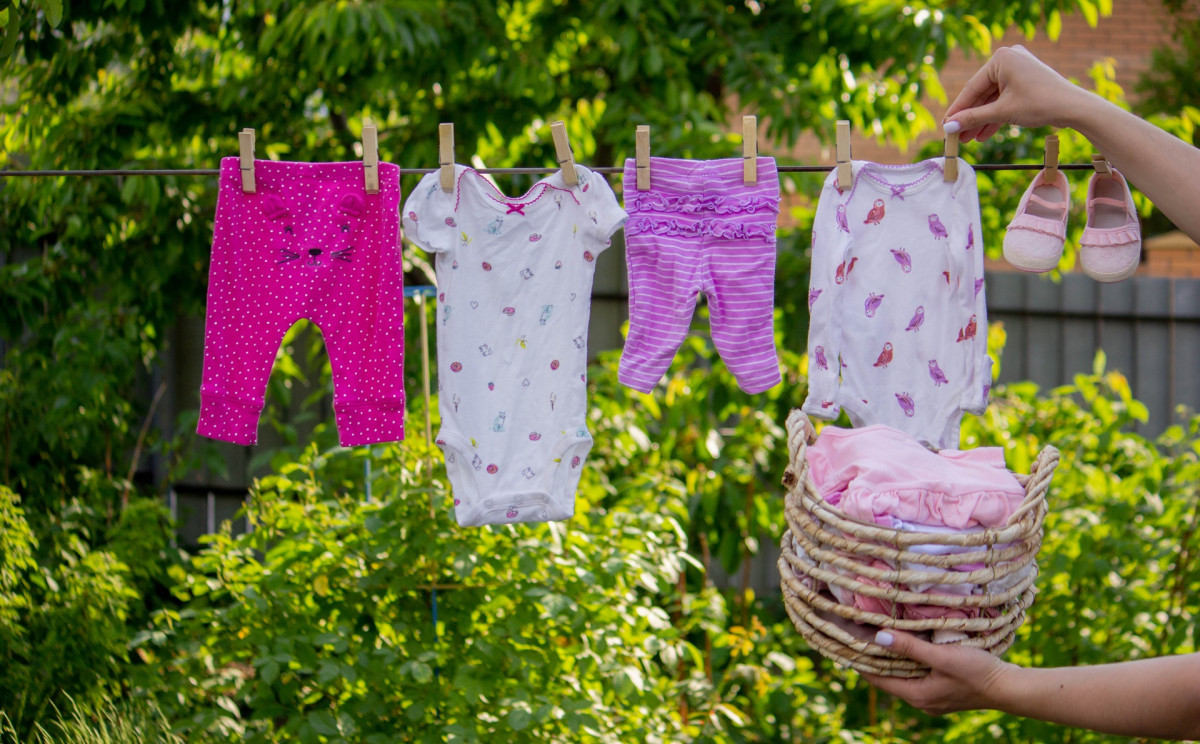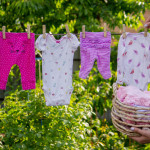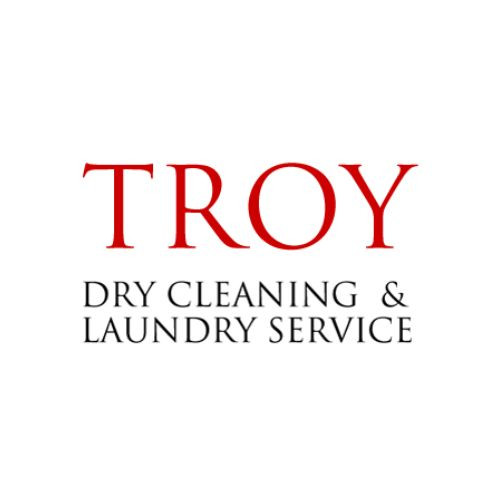Troy Cleaners Highlights the Seven Most Common Mistakes Parents Make When Washing Baby Clothes
Troy Cleaners is raising awareness among parents about common laundry practices that may damage delicate baby garments or cause skin irritation. With years of experience in caring for fine fabrics, the company emphasizes that proper laundering is essential for maintaining the comfort, softness, and longevity of infant clothing.
Babies have sensitive skin, and the clothes they wear — from the first onesie brought home from the hospital to the cozy sleepers used each night — play an important role in their comfort and wellbeing. These garments, often crafted from delicate cotton blends, organic fabrics, or specialty knits, are vulnerable to shrinking, fading, or losing softness when washed improperly. Harsh laundry habits can also introduce irritants that may affect a baby’s skin.
According to Troy Cleaners, most baby clothing mishaps begin in the laundry room. Stubborn stains, stretched-out collars, or roughened fabrics often result from common mistakes that parents may not even realize they’re making. By identifying these errors and replacing them with gentler methods, families can preserve their baby’s wardrobe and protect sensitive skin.
1. Using Harsh Laundry Detergents
Many standard laundry detergents contain dyes, fragrances, and chemicals that can cling to baby clothes, leading to irritation, rashes, or allergic reactions. Because infants’ skin is thinner and more delicate than adults’, even small residues can cause discomfort. Troy Cleaners recommends that parents prioritize detergents specifically designed for infant clothing.
What Parents Should Do Instead
-
Use Hypoallergenic and Fragrance-free Options
Detergents labeled “free and clear,” “hypoallergenic,” or “sensitive skin” are free from perfumes and dyes that may trigger skin reactions. -
Avoid Harsh Cleaning Agents
Detergents with optical brighteners, chlorine bleach, or fabric whiteners should be avoided unless absolutely necessary, as these can weaken fibers and leave behind residues. -
Test Before Committing
When switching to a new detergent, Troy Cleaners suggests washing a few items first and observing for any skin reactions before using it across the full wardrobe.
2. Washing Baby Clothes with the Rest of the Household Laundry
While combining baby laundry with household clothing may appear efficient, it can expose delicate garments to bacteria, heavy soils, and detergent residues unsuitable for infants’ sensitive skin. Adult clothes often carry oils, sweat, and environmental dirt that can be too harsh for babies.
What Parents Should Do Instead
-
Use a Dedicated Laundry Basket
Keeping baby clothes in their own hamper helps prevent accidental mixing with other laundry. -
Run Smaller, Gentle Cycles
Baby garments should be washed on delicate or baby-specific settings, giving them room to move freely for a thorough clean. -
Use a Mesh Laundry Bag for Tiny Items
Placing socks, mittens, and small pieces in mesh bags prevents tangling or loss during the wash.
3. Skipping the Prewash on Brand New Baby Clothing
Brand new clothing often looks spotless but can contain manufacturing residues, excess dyes, or chemical treatments. According to Troy Cleaners, skipping the prewash allows these substances to come in direct contact with a baby’s skin, potentially causing irritation.
Why Prewashing Baby Clothes Is Essential
-
Removes Factory Residue
Prewashing eliminates chemical finishes, dust, and debris accumulated during production and shipping. -
Softens the Fabric
Washing new clothes relaxes fibers, enhancing comfort and softness for baby wear. -
Reduces Dye Transfer Risk
Prewashing bright-colored garments prevents dye from bleeding onto other items during future washes.
4. Letting Milk, Food, or Diaper Stains Sit Too Long
Allowing stains to linger is one of the fastest ways to damage baby clothing. Proteins from milk, formula, and diaper accidents bind to fibers when left untreated, making removal more difficult and often leaving behind yellow stains or odors.
What Parents Should Do Instead
-
Rinse Immediately in Cold Water
Cold water stops protein stains from setting, a reaction that can occur in warm or hot water. -
Use Gentle, Baby-safe Stain Removers
Parents should select cleaners formulated for baby laundry and avoid harsh products containing bleach or ammonia. -
Presoak Stubborn Spots
For tougher stains, soaking garments in mild detergent for 30 minutes before washing improves results.
5. Overloading the Washing Machine with Baby Laundry
Filling the washing machine to capacity may seem efficient, but Troy Cleaners warns that it can prevent proper cleaning and cause wear to delicate fabrics. When overloaded, detergent and water cannot circulate effectively, leading to friction that breaks down fibers.
What Parents Should Do Instead
-
Follow Machine Capacity Guidelines
Review the washer’s manual for load recommendations, adjusting accordingly for delicate clothing. -
Leave Space for Movement
Garments should have room to move; a good practice is filling the drum about two-thirds full. -
Wash in Smaller, More Frequent Loads
Frequent, smaller loads reduce the temptation to overfill and help preserve the integrity of fabrics.
6. Drying Baby Clothes on High Heat and Shrinking Fabrics
High heat can shrink cotton and linen, weaken elastic, and fade colors. Many baby clothes feature delicate trims, appliqués, or elastic waistbands that do not tolerate excessive heat.
Better Drying Methods for Baby Clothing
-
Air Dry Whenever Possible
Laying garments flat or hanging them to dry helps maintain shape and softness. -
Use Low Heat or Fluff and Fold Settings
When machine drying is necessary, selecting the gentlest setting minimizes damage. -
Dry in Smaller Batches
Smaller loads dry evenly, reducing overheating and prolonging garment life.
7. Adding Bleach or Fabric Softener That Irritates Baby’s Skin
Bleach and fabric softeners can leave chemical residues unsuitable for babies. While bleach may disinfect, it can weaken fabric fibers, and softeners can leave coatings that reduce absorbency — particularly for bibs and towels.
Safer Alternatives to Bleach and Fabric Softener
-
Use Oxygen-based Bleach for Whites
Oxygen bleach brightens without harming fibers. -
Replace Fabric Softener with Dryer Balls
Wool or silicone dryer balls naturally soften fabric without chemicals. -
Add Vinegar to the Rinse Cycle
White vinegar removes detergent residue and softens clothing safely.
Keep Every Baby Outfit Fresh with Troy Cleaners
Troy Cleaners underscores that baby garments deserve the same level of gentle care as a baby’s skin. With years of expertise in fabric preservation, the company has perfected a laundry process that avoids common pitfalls such as shrinking, fading, or damage to delicate items. From daily onesies to cherished blankets, every piece is treated to maintain its softness, cleanliness, and comfort.
Parents are encouraged not to wait until a favorite outfit is stained or ruined. For expert assistance, Troy Cleaners invites families to call (810) 985-7111 or visit one of its convenient locations in Port Huron, Shelby Township, or Lapeer.
With FREE Pickup and Delivery Service, Troy Cleaners makes it easy for busy parents to keep their baby’s wardrobe fresh, soft, and safe — every time.














